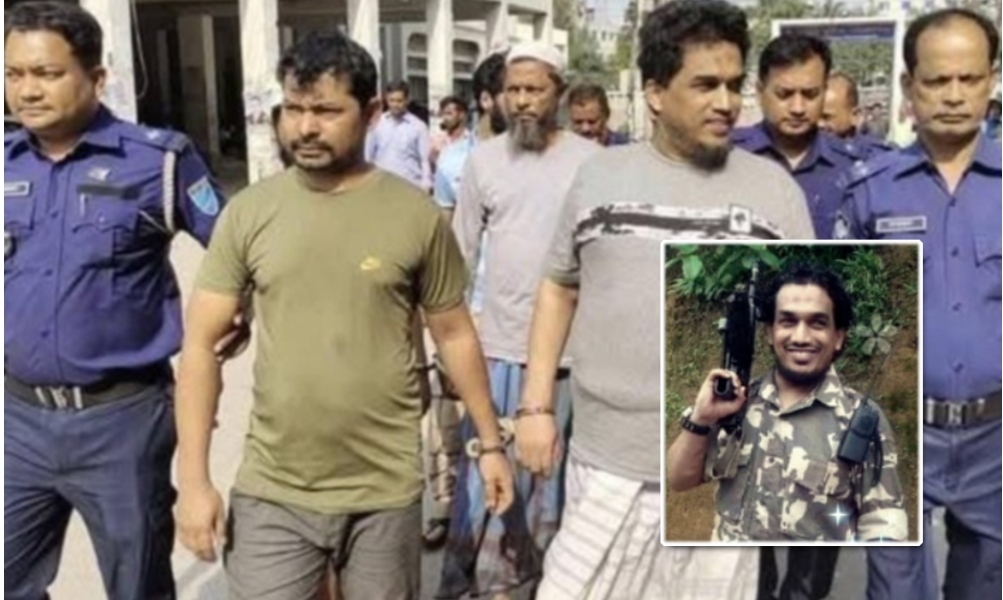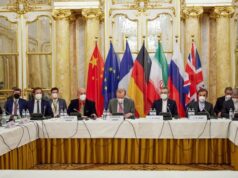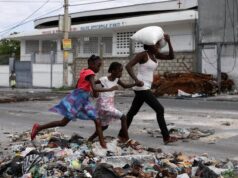The arrest of the ARSA kingpin marks a turning point for regional security

The recent arrest of Ataullah Abu Ammar Jununi, the kingpin of the Arakan Rohingya Salvation Army (ARSA), by Bangladesh’s Rapid Action Battalion (RAB) marks a significant moment in the ongoing crisis surrounding the Rohingya.
Captured alongside ten other ARSA members in Narayanganj, near Dhaka, Ataullah’s detention has raised critical questions about the future of Rohingya militancy, the evolving dynamics in Rakhine State, and the broader security implications for the region.
Ataullah emerged as a central figure in the Rohingya resistance movement in 2016-2017, when ARSA carried out attacks on Myanmar’s security forces.
Presenting the group as a defender of the persecuted Rohingya, he gained significant traction among disenfranchised youth seeking protection.
However, ARSA’s actions, often marked by poorly executed militant strikes, failed to achieve any strategic gains and instead exacerbated the Rohingya crisis.
While ARSA claimed to be a resistance movement, its lack of sophisticated weaponry and strategic capabilities rendered it largely ineffective.
Its attacks on Myanmar border posts in 2016 and 2017 served as a pretext for the Myanmar military’s brutal crackdown, which resulted in the displacement of over 700,000 Rohingya to Bangladesh.
Despite claims that it was fighting for Rohingya rights, ARSA’s activities contributed to the justification of a military-led campaign widely recognized as ethnic cleansing and genocide.
Bangladeshi law enforcement authorities have long been monitoring ARSA’s growing influence in the refugee camps of Cox’s Bazar, where the group was linked to extortion, targeted killings, and forced recruitment.
Ataullah’s arrest on March 18 was the culmination of a crackdown on criminal networks and extremist elements operating within the camps. Intelligence sources suggest he was attempting to evade capture by moving between various safe houses.
The arrest is particularly significant given the allegations that ARSA had been receiving support from Pakistan’s Inter-Services Intelligence (ISI), Palestinian Hamas, and Al-Qaeda.
These claims, if substantiated, indicate a troubling link between ARSA and transnational jihadist networks, further complicating the already fragile security landscape in the region.
Within the refugee camps, ARSA’s presence has been a source of fear and instability. Reports of forced recruitment, illegal taxation, and violent suppression of dissent have made the group a liability for the Rohingya community.
Many refugees welcomed the arrest, hoping it would lead to a decrease in criminal activities within the camps.
However, Ataullah’s capture does not necessarily dismantle ARSA’s ideological influence. While its operational capacity in Bangladesh may weaken, pockets of militant sympathizers may continue to operate, particularly if no alternative leadership emerges within the Rohingya community to address grievances through non-violent means.
Ataullah’s arrest comes at a time when the power dynamics in Rakhine State are shifting. The Arakan Army (AA), an ethnic Rakhine insurgent group, has gained control over significant parts of Rakhine, challenging Myanmar’s military rule.
Unlike the Tatmadaw, the AA has shown some willingness to engage with Rohingya communities, though its refusal to recognize the term “Rohingya” underscores deep-seated ethnic tensions.
With Myanmar’s military junta increasingly preoccupied with conflicts across the country, the AA’s control in Rakhine could open new avenues for negotiations.
However, the fate of the Rohingya remains uncertain. The AA’s long-term commitment to inclusive governance is unclear, and the absence of a political framework addressing Rohingya citizenship rights and autonomy makes the situation highly volatile.
The broader issue remains the lack of a durable solution for the displaced Rohingya. Stuck in refugee camps with limited access to education, employment, and legal recognition, many Rohingya youth face bleak prospects.
This environment serves as fertile ground for radicalization, particularly if grievances remain unaddressed.
While ARSA’s operational capacity may decline following Ataullah’s arrest, new militant factions could emerge unless the root causes of Rohingya disenfranchisement are tackled.
Myanmar’s reluctance to grant citizenship, continued restrictions on movement, and the absence of international pressure for meaningful reforms mean that the risk of further radicalization remains high.
The international community has a critical role in shaping the post-ARSA landscape. Bangladesh, as the host of nearly a million Rohingya refugees, must balance security concerns with humanitarian responsibilities.
Meanwhile, Myanmar’s National Unity Government (NUG) and the Arakan Army must be encouraged to engage in dialogue with legitimate Rohingya representatives to ensure a sustainable resolution.
Regional actors, particularly India and China, also have a stake in the stability of Rakhine State. Both nations have invested in infrastructure projects in Myanmar, and continued instability could disrupt their strategic ambitions.
Diplomatic pressure from ASEAN, the UN, and global powers must focus on securing the safe, voluntary, and dignified repatriation of Rohingya refugees.
The arrest of Ataullah Abu Ammar Jununi marks the downfall of one of the most controversial figures in the Rohingya crisis. His capture presents an opportunity to weaken ARSA’s grip on the refugee camps and potentially shift the trajectory of the conflict in Rakhine State.
However, without addressing the underlying grievances of the Rohingya, the cycle of violence is likely to continue.
To prevent further radicalization, international stakeholders must support political and economic initiatives that empower the Rohingya.
Investment in education, vocational training, and community-building efforts within refugee camps and Rakhine State is essential.
Additionally, diplomatic efforts must focus on securing legal recognition and citizenship rights for the Rohingya to break the vicious cycle of displacement and persecution.
Ultimately, while Ataullah’s arrest disrupts ARSA’s operations, it does not resolve the crisis. The fate of the Rohingya depends on sustained international engagement, regional cooperation, and a long-term commitment to justice and inclusion.




